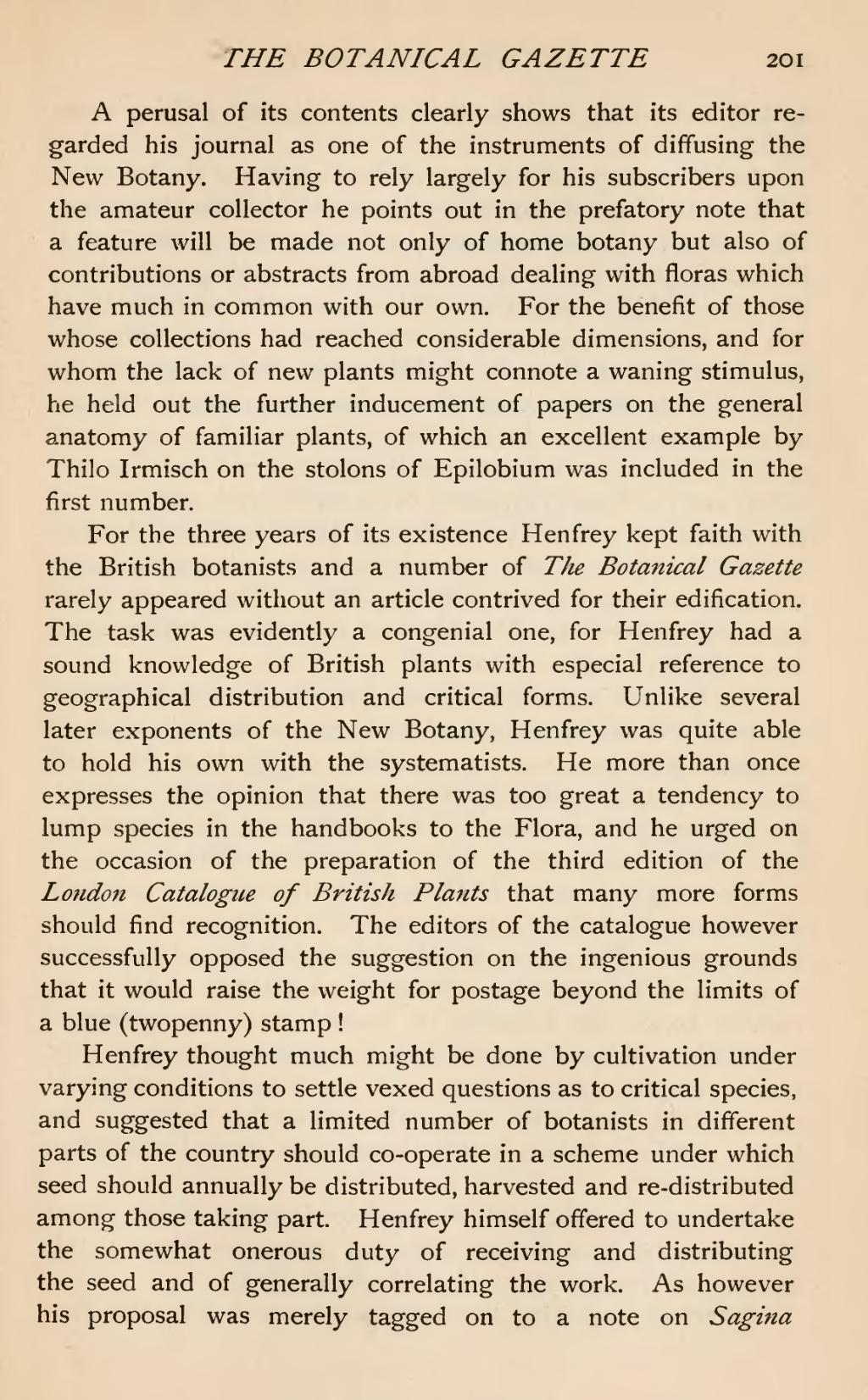A perusal of its contents clearly shows that its editor regarded his journal as one of the instruments of diffusing the New Botany. Having to rely largely for his subscribers upon the amateur collector he points out in the prefatory note that a feature will be made not only of home botany but also of contributions or abstracts from abroad dealing with floras which have much in common with our own. For the benefit of those whose collections had reached considerable dimensions, and for whom the lack of new plants might connote a waning stimulus, he held out the further inducement of papers on the general anatomy of familiar plants, of which an excellent example by Thilo Irmisch on the stolons of Epilobium was included in the first number.
For the three years of its existence Henfrey kept faith with the British botanists and a number of The Botanical Gazette rarely appeared without an article contrived for their edification. The task was evidently a congenial one, for Henfrey had a sound knowledge of British plants with especial reference to geographical distribution and critical forms. Unlike several later exponents of the New Botany, Henfrey was quite able to hold his own with the systematists. He more than once expresses the opinion that there was too great a tendency to lump species in the handbooks to the Flora, and he urged on the occasion of the preparation of the third edition of the London Catalogue of British Plants that many more forms should find recognition. The editors of the catalogue however successfully opposed the suggestion on the ingenious grounds that it would raise the weight for postage beyond the limits of a blue (twopenny) stamp!
Henfrey thought much might be done by cultivation under varying conditions to settle vexed questions as to critical species, and suggested that a limited number of botanists in different parts of the country should co-operate in a scheme under which seed should annually be distributed, harvested and re-distributed among those taking part. Henfrey himself offered to undertake the somewhat onerous duty of receiving and distributing the seed and of generally correlating the work. As however his proposal was merely tagged on to a note on Sagina
